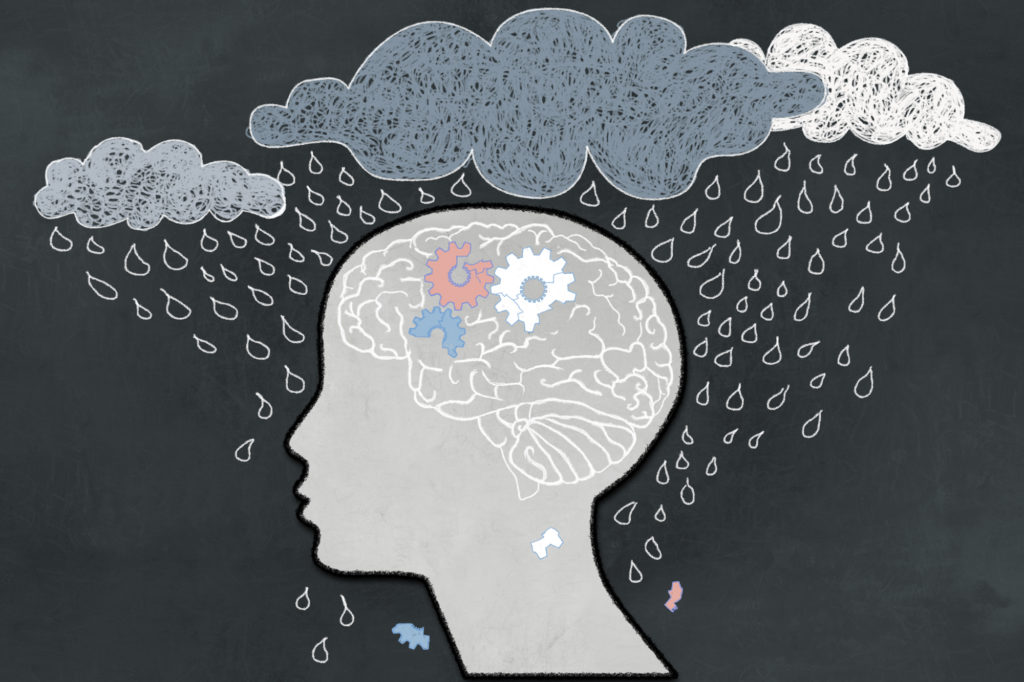
The change of seasons, crossing time zones and missing home take their toll. Whatever personal reasons might be causing depressed feelings, do not ignore your emotions and try to take good care of yourself. When suffering from depression, it is important to remember that you are not the first nor are you alone. Do not hesitate to consult a medical professional for extra support (which does not mean you would have to start taking medications). There are definitely solutions available to improve your mood without medication. Following are some suggestions:
1. Make Personal Quality Time
Do something enjoyable every day, even if you don't feel like it. It may be cliché, but it is important to take time for yourself. It is about small, personally enjoyable things that can be done a few times a day. If you are not feeling in the mood for anything, try to make yourself do something regardless, even if it is for only five or ten minutes once a day. Focus on the moment and the action itself, without distractions. Drink a cup of tea, go for a walk, take a seat in the sun, call a friend, play your favorite music. When you are starting to feel a little bit better, keep it up and eventually expand your personal quality time. Explore other ways to boost your mood; playing sports, taking a hike, meeting with a friend, buying a gift for someone else or plan a vacation. Every positive experience, no matter how small, will strengthen your mood and ensure more balance.
2. Balanced Nutrition
Eating habits can strongly affect your mood. Your brain depends on the nutrients from food for its healthy functioning. Long periods of unhealthy eating can have negative consequences on brain function. At the same time, depression can have a strong influence on a diet. This can express itself through the lack of appetite or an aversion to the taste of food. It can also manifest itself in the reciprocal, by binge eating emotions away. After a binge, the “hangover’” of guilt and shame can exacerbate the depressed feelings. Avoid food products with (refined) sugars and focus on fresh foods, such as fruits and vegetables. Maintain a balanced diet to keep your body weight constant.
3. Exercise in Nature
Though we might think that depression is purely in our brain, various studies have shown that physical exercise has a beneficial effect on symptoms of depression, and even helps prevent relapses. The brain is part of our body, after all. It might be difficult to become motivated to take action, and even avoid physical activity which can eventually lead to a negative spiral of passivity and apathy. To prevent this, it is important to start moving gradually, one small step at a time. Take short walks, and over time extend those into longer walks. When successful, alternate between swimming or cycling. Exercise reduces stress and the chance of a number of physical illnesses. It lowers the stress hormones cortisol and adrenaline. At the same time, exercise increases the action of dopamine and serotonin, and releases endorphins. Exercising in nature can have additional calming and stimulating effects on your mood. In addition, physical exercise improves physical fitness, self-image and self-confidence.
4. Escape from Isolation
Loneliness can be both the cause and effect of depression. The lack of social contacts, stable relationships or family can lead to gloom. However, depression can be contradictory, and become an important cause of isolation. Often during depressed episodes, feelings of shame and worthlessness can occur, preventing us from taking the initiative to fulfill our natural need for social contact. Research shows that basic social contact can be helpful, and having a number of satisfactory contacts reduces the chance of relapse.
- Remember that you can have social contacts with few words. Just the presence of others can be a good first step.
- You are not obliged to talk about personal problems. It can be helpful to focus on someone else and listen to their stories.
- Talk with someone you trust and who can listen. This could also be a medical professional or therapist. Just as with exercise, this will certainly require some effort, especially in the initial period.
- When you’re ready for it, combine exercising or other hobbies with someone who would like to join.
5. Therapy without Medication
If you cannot overcome depression alone, it is advisable to seek a therapist who will help you find suitable treatment. Take yourself and your complaints seriously and take care of yourself. Depression is a common mood disorder and usually treatable without medication. Following are a few forms of therapy one may encounter:
Cognitive-behavioral therapy: Change your mindset.
What is it? Cognitive-behavioral therapy is the most proven and widely used form of depression therapy. It is considered talk-therapy where you will have conversations with a therapist. Most of the time, the therapist will ask you to do “homework” exercises like keeping a diary to gain more insight into your thoughts and feelings.
How does it work? The basis of cognitive-behavioral therapy is the concept that your thoughts influence how you feel and behave. Investigating which negative-thinking patterns sustain the depression is central during the therapy sessions.
Eye Movement Desensitization and Reprocessing (EMDR)
What is it? Eye Movement Desensitization and Reprocessing works especially with depression that originates with trauma, such as emotional neglect or abuse. During EMDR you think back on your trauma while you follow the therapist's finger movements with your eyes. If the depression is caused by a definitive trauma, EMDR can help very quickly. If multiple traumas play a role, multiple treatments are often required.
How does it work? Stressful events are better remembered than neutral events. As a result, they can have more impact on our daily lives. EMDR helps to store these memories differently. How exactly was unknown for a long time, but recent research has shown that the finger movements distract in a way that less energy will go to the amygdala, the brain area which is important for storing memories. EMDR is usually combined with cognitive-behavioral therapy. It is advisable to consult therapists who are specialized in EMDR.
Light therapy for dark days
What is it? When suffering from Seasonal Affective Disorder (SAD), the functioning of the biological clock is disrupted by a lack of daylight. This causes your wake-sleep rhythms to be upset and you can become gloomy. Light therapy provides relief from seasonal depression. With a special lamp of 10,000 lux, the lack of sunlight is compensated.
How does it work? The light from the therapy lamp restores the day and night rhythm. It is imperative to look directly into the light so the light fall upon the retina. Research showed that it can help 70 to 80 percent of symptoms disappear. SAD can be helped with five to ten morning sessions during the dark months. It is strongly advisable to follow light therapy with the guidance of a therapist.
Self-test
The most important symptom of depression is a depressed feeling that lasts longer than two weeks. If you experience five or more of the named symptoms, you may be suffering from depression. However, even if you have fewer than five, do not hesitate to seek professional help if you feel you could benefit. When in need of immediate mental help, you can contact the Substance Abuse and Mental Health Services Administration’s national helpline – 1-800-662-HELP (4357).
Symptoms of depression:
- Depression / gloom
- Loss of interest
- A sense of worthlessness and hopelessness
- Sleep problems
- Very tired and low energy
- Eating problems (eating too much or too little)
- Evident weight change
- Sudden panic or anxiety
- Quick to become irritated
- Restlessness or slowness
- Indecision
- Feelings of guilt
- Lack of sex drive
- Concentration problems
- Neglect of social contacts
- Recurring thoughts of death or suicide































































































































